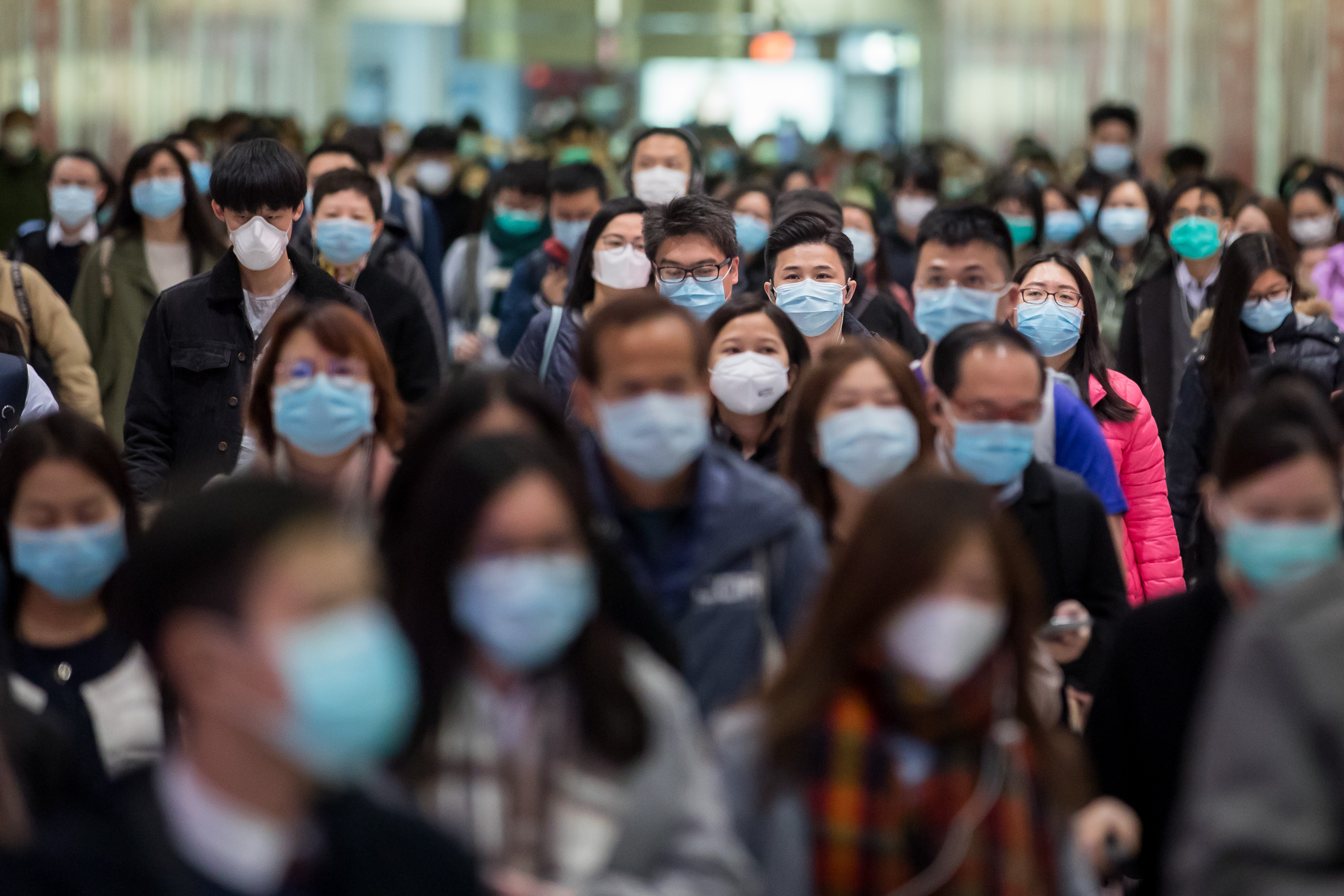Coronavirus’s deadliest day: behind the rising numbers
Sharp spike in cases of Covid-19 comes after hopes that rate of infection was slowing

A free daily email with the biggest news stories of the day – and the best features from TheWeek.com
You are now subscribed
Your newsletter sign-up was successful
The new strain of coronavirus claimed the highest number of lives so far in China on Wednesday.
A total of 14,840 new cases and 242 deaths were recorded in the Chinese province of Hubei, the centre of the outbreak. The latest national figures are yet to be revealed.
The spike in deaths came after hopes that the rate of infection was slowing. On Tuesday, China recorded the lowest number of deaths from the Covid-19 virus in a fortnight.
The Week
Escape your echo chamber. Get the facts behind the news, plus analysis from multiple perspectives.

Sign up for The Week's Free Newsletters
From our morning news briefing to a weekly Good News Newsletter, get the best of The Week delivered directly to your inbox.
From our morning news briefing to a weekly Good News Newsletter, get the best of The Week delivered directly to your inbox.
What is behind the rise?
Hubei “has started using a broader definition to diagnose people - which accounts for most of the rise in cases”, if not the spike in deaths, says the BBC.
The broadcaster explains: “The province - which accounts for more than 80% of overall Chinese infections - now includes ‘clinically diagnosed cases’ in the number of confirmed cases.
“This means it includes those showing symptoms, and having a CT scan showing an infected lung, rather than relying only on the standard nucleic acid tests.”
A free daily email with the biggest news stories of the day – and the best features from TheWeek.com
However, health experts “question the accuracy of China’s official data, saying the testing system captured only a fraction of the cases in China’s hospitals, particularly those that are poorly run”, says the Financial Times.
Neil Ferguson, a professor of epidemiology at Imperial College London, has estimated that the official figures from Wuhan, the Hubei city where the virus was first detected, may capture only one in every 19 cases.
“Getting a proper gauge on infections is seen as critical to ending the outbreak and restarting the world’s second-largest economy,” says the newspaper.
Meanwhile, Hubei’s top official, Jiang Chaoliang, has been replaced by former Shanghai mayor Ying Yong
The FT says the “reshuffle of high-ranking party members is the latest escalation of drastic measures taken by the Communist Party to bring under control the outbreak, which has become the greatest challenge to [President Xi Jinping’s] rule since he took office in 2012”.
–––––––––––––––––––––––––––––––For a round-up of the most important stories from around the world - and a concise, refreshing and balanced take on the week’s news agenda - try The Week magazine. Start your trial subscription today –––––––––––––––––––––––––––––––
What about elsewhere?
Across the world, at least 60,395 coronavirus cases have been recorded and 1,369 deaths, according to Worldometer figures. All of the deaths have been in mainland China apart from one in Hong Kong and one in the Philippines. More than 6,000 people have recovered.
Japan has confirmed another 44 cases on board the Diamond Princess cruise ship, quarantined in Yokohama, taking the total number to 218.
In the UK, nine cases of the new coronavirus have been identified so far. All of the patients are receiving treatment, and one is said to have recovered. The most recent case is that of a woman who flew in to London from China.
Although doctors says the risk of infection in the UK is still very low, public health experts warn that London’s transport hub status means any virus in the capital could spread quickly.
The London Underground in particular could be a hotbed for transmission, experts told Sky News. However, they insist the risk for commuters remains low.
-
 How Democrats are turning DOJ lemons into partisan lemonade
How Democrats are turning DOJ lemons into partisan lemonadeTODAY’S BIG QUESTION As the Trump administration continues to try — and fail — at indicting its political enemies, Democratic lawmakers have begun seizing the moment for themselves
-
 ICE’s new targets post-Minnesota retreat
ICE’s new targets post-Minnesota retreatIn the Spotlight Several cities are reportedly on ICE’s list for immigration crackdowns
-
 ‘Those rights don’t exist to protect criminals’
‘Those rights don’t exist to protect criminals’Instant Opinion Opinion, comment and editorials of the day
-
 Epstein files topple law CEO, roil UK government
Epstein files topple law CEO, roil UK governmentSpeed Read Peter Mandelson, Britain’s former ambassador to the US, is caught up in the scandal
-
 Iran and US prepare to meet after skirmishes
Iran and US prepare to meet after skirmishesSpeed Read The incident comes amid heightened tensions in the Middle East
-
 Israel retrieves final hostage’s body from Gaza
Israel retrieves final hostage’s body from GazaSpeed Read The 24-year-old police officer was killed during the initial Hamas attack
-
 China’s Xi targets top general in growing purge
China’s Xi targets top general in growing purgeSpeed Read Zhang Youxia is being investigated over ‘grave violations’ of the law
-
 Panama and Canada are negotiating over a crucial copper mine
Panama and Canada are negotiating over a crucial copper mineIn the Spotlight Panama is set to make a final decision on the mine this summer
-
 Why Greenland’s natural resources are nearly impossible to mine
Why Greenland’s natural resources are nearly impossible to mineThe Explainer The country’s natural landscape makes the task extremely difficult
-
 Iran cuts internet as protests escalate
Iran cuts internet as protests escalateSpeed Reada Government buildings across the country have been set on fire
-
 US nabs ‘shadow’ tanker claimed by Russia
US nabs ‘shadow’ tanker claimed by RussiaSpeed Read The ship was one of two vessels seized by the US military